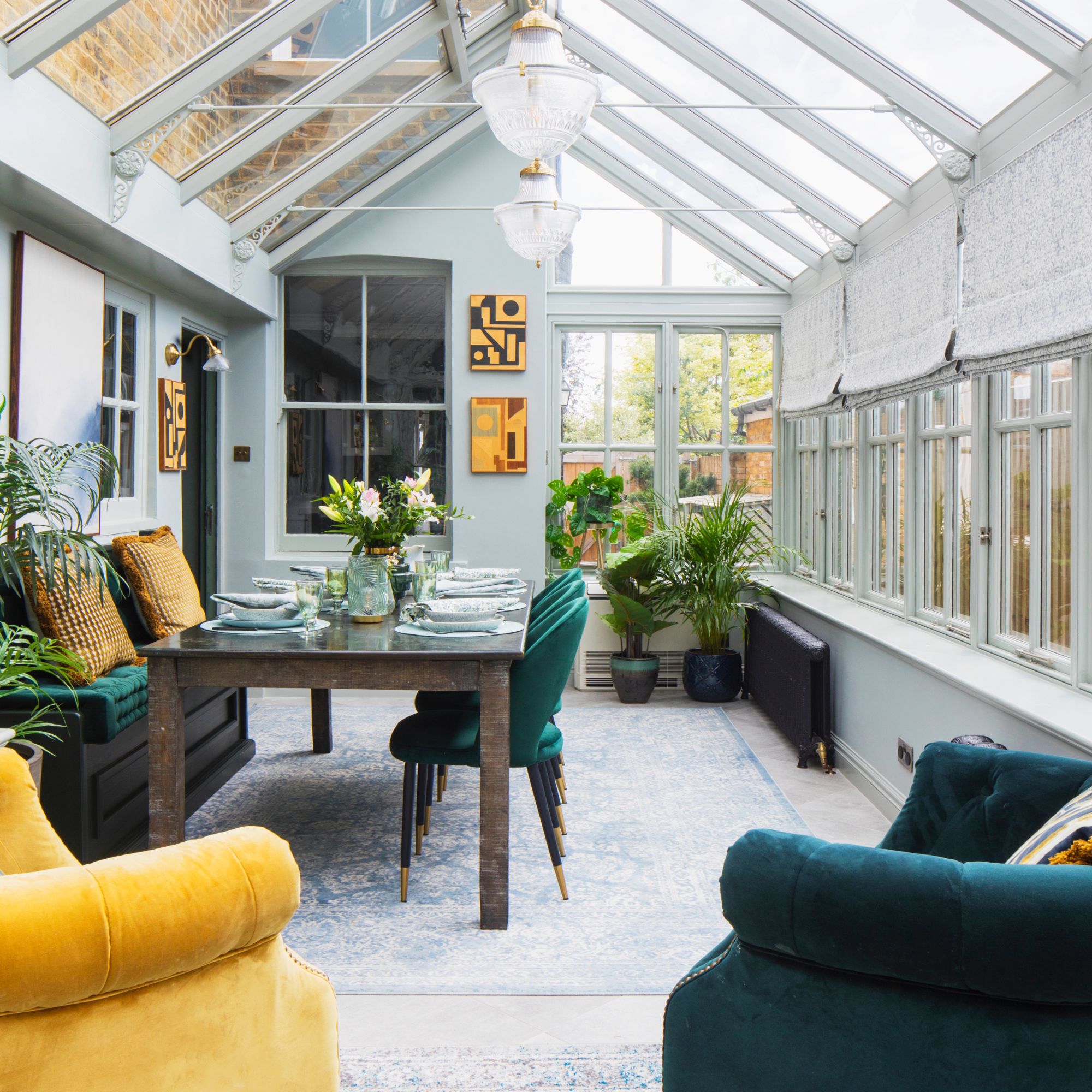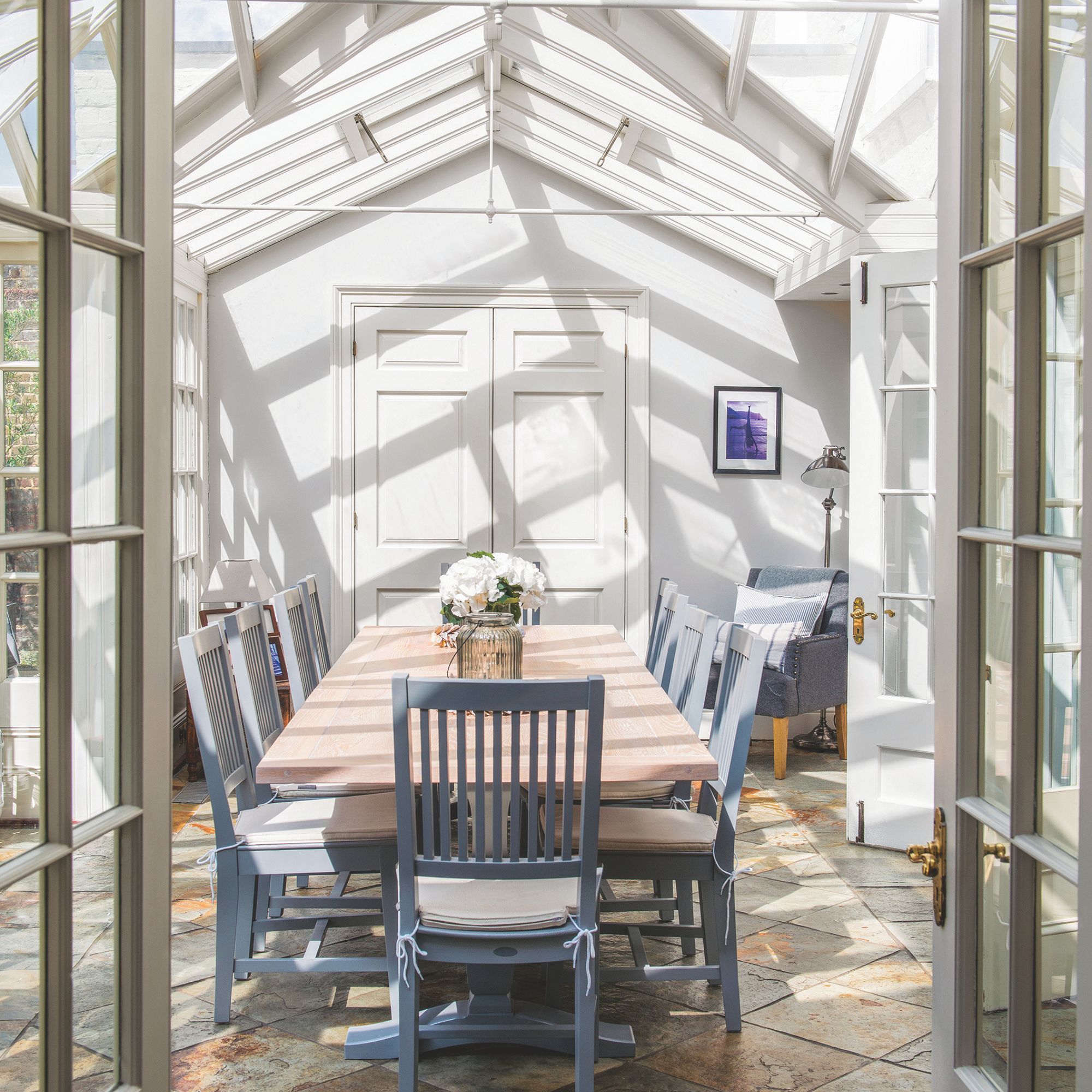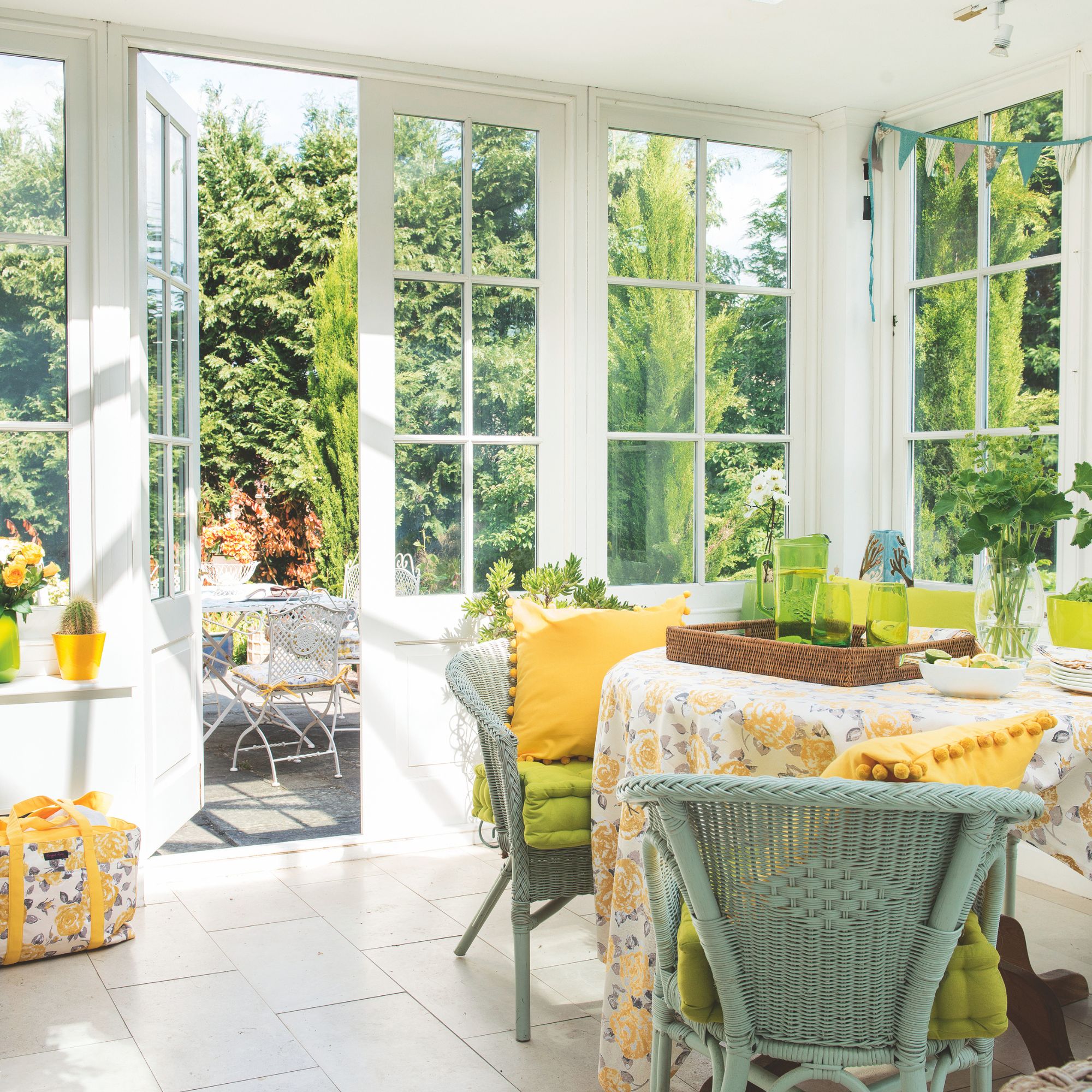
Conservatories are a popular and relatively inexpensive way to add more space to your home and improve connection with your garden. While cheaper than an extension, exactly how much does a conservatory cost and what factors affect the overall price?
Before you can start planning a conservatory, you'll need to understand how much to budget for the new space. Ultimately the cost will depend on your specific conservatory ideas, but we've spoken to the experts to determine average costs and what can send that figure soaring.
How much does a conservatory cost?

'On average, a basic uPVC conservatory starts at around £10,000 to £15,000, while a mid-range option with higher-quality materials such as aluminium can cost between £20,000 and £40,000, says Barney Bell from David Salisbury.
'Bespoke, luxury conservatories, such as those crafted from premium timber, with ornate detailing, are likely to start from £45,000+,' he adds.
However, the price you'll actually pay will depend on a few different factors including the size, you choice of frame and glazing, the foundations required, and any internal finishes you specify.
‘Design will always be partnered with budgeting as it dictates what you can and cannot do, so being pragmatic is important,’ advises Gareth McCluskey, head of marketing at conservatory experts CR Smith.
What can affect the cost of your conservatory?

While it's helpful to understand the average costs of a conservatory, you'll also need to know what affects the price.
- Size. The bigger your conservatory, the more it will need in terms of foundations, framing and glass, so will understandably be pricier than smaller builds.
- Frame material and design. A simple uPVC frame design will be more cost-effective than an ornate timber design. But when choosing the frame material, you should factor in the durability, maintenance and lifespan of your options to make sure you get the best value for your money. For example, you'll pay more for an aluminium frame compared to uPVC, but aluminium will last longer and require very little in terms of maintenance.
- Glazing choice. 'Whilst there are a number of different considerations, key factors affecting the cost will include choice of material and glazing options - double or triple glazing and self-cleaning or solar control glass will impact both price and energy efficiency,' says Barney Bell.
- Roof design. A polycarbonate roof will be the cheapest, and the price of a glass roof will depend on the size and the type of glass you choose. If you want the conservatory to be open to the rest of your home, you'll need to factor in the cost of a solid roof to ensure your design meets Building Regulations stipulations.
- Groundworks. The complexity of the site preparation and the depth of any foundations will impact costs.
- Finishing touches. The cost of your choice of flooring, heating and lighting will need to be factored into your budget, along with any work that may need to be done to maximise the view you have of your garden from the new space.
To give you a starting point, ConservatoryLand has a helpful calculator where you can get an accurate quote for the cost your new conservatory. This can be a really useful benchmark for comparing other quotes. (Make sure you compare quotes on a like-for-like basis to have the clearest view of how far your budget will stretch.)
Remember that whichever style you do end up going for, there are always ways to make your conservatory look more expensive once they're built.
Which type of conservatory is cheapest?

The most cost-effective conservatory is a simple lean-to design with a uPVC frame. These have simple, rectangular designs and require fewer materials than Victorian and Edwardian-style conservatories. A lean-to conservatory can range in price from £8,000 to £17,000, depending on the size and the roofing and frame materials you opt for.
'For properties where space is limited, or where there is space under the eaves, like a bungalow, then a lean-to conservatory is a practical and stylish way to extend a property,' says Ryan Schofield. 'Its versatile design is ideal for matching the style and dimensions of any home.'
Is a conservatory cheaper than an extension?

If you're debating between an extension and a conservatory, on average, conservatories tend to be cheaper than building an extension. They require fewer materials and are often exempt from Building Regulations and planning permission requirements (although this depends on where you live and how big your conservatory is, so always check with your local planning authority before investing in one).
While a conservatory may be cheaper, it's important you carefully consider what you need the additional space for when determining the best route to get it.
FAQs
How much value would a conservatory add to my house?
A conservatory could add 5-7% to the value of your property, but it needs to be done well.
‘One of the most common mistakes when adding a conservatory is not having a definite function for the new addition. Some conservatories look ‘bolted on’ to the back of the house just because it is possible and the space serves no real purpose,’ says Ryan Schofield, managing director of Thames Valley Window Company.
‘Define the function and you have a tangible selling point when your home hits the market. Whether it is an extended kitchen, dining area or home office, as long as it has a purpose it will add value.’
You also need to consider the fact that building a conservatory will mean sacrificing existing garden space, which could impact your home's value. But work closely with your conservatory provider to get the additional space and function you need, while maintaining as much garden area as you can.
What adds more value, an extension or conservatory?
When it comes to how much value an extension will add to your home compared to a conservatory, the extension tends to win out.
‘When comparing an extension or conservatory in terms of the value they add to your property, an extension is always going to be the winner,’ says Ryan. This is because ‘the space has a clear and defined function with all the necessary elements to fulfil that function.’ It can also be fully customised to your wants and needs while a conservatory does have some limitations when it comes to its type and style.
There’s also the added benefit that an extension can be used all year round, whereas it can be trickier to enjoy spending time in your conservatory when it is sweltering hot in the summer or icy cold in the winter.
But it all depends which one is more attractive to you and your family. For some an extension to increase the size of the kitchen or add an additional bedroom could be much more beneficial than a conservatory.
Does adding a conservatory increase council tax?
‘The short answer is no,’ says Mervyn Montgomery, founder of Hampton Conservatories. ‘In England and Scotland, council tax is based on the property valuation as of April 1991. Properties in Wales were revalued in 2003, so council tax here is based on a property's market value on 1 April 2003.'
'Therefore in all three regions, adding a conservatory or any other sort of extension for that matter, should not affect your council tax band while you are living in the property as, in general, councils do not want to penalise people for improving or maintaining their home.’
‘However, where major structural changes have taken place, it may be that a property needs revaluing but crucially, a new rate would only be applied when the property is sold. It's quite likely that even with a new conservatory, the increase in value is not enough to move it into a higher band,’ Mervyn concludes.
‘Property valuations in Northern Ireland are updated more regularly, so adding a conservatory here could impact your council tax whilst you still live in the property.’
Once you've decided on your conservatory, you'll want to try these conservatory styling tips to make it look its best.







